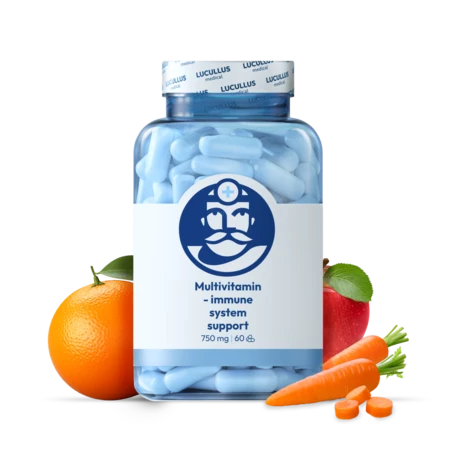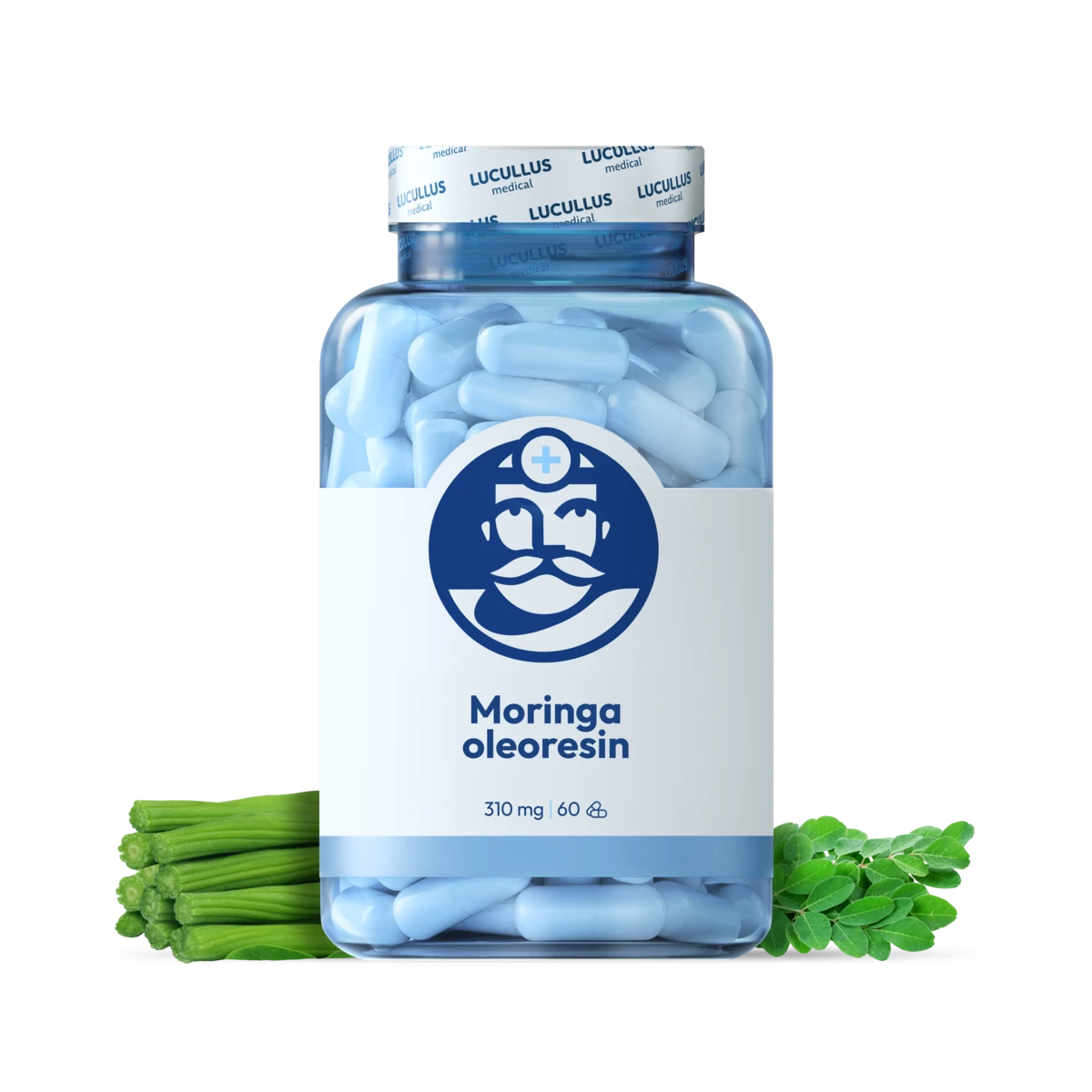
Moringa olejodarná (Moringa oleifera)
Dr. Lucullus zdôrazňuje, že nie je „moringa“ ako „moringa“, u nás si zakladáme na tom, aby naše prírodne výživové doplnky, boli prvotriednej kvality. Záleží nám na obsahu, čistote a účinnosti zložiek, ktorými prispievame k Vášmu zdraviu. Objasňujeme prečo: Šetrným spracovávaním listov do superpotraviny v práškovej forme, zabezpečujeme jeho stabilitu, ochranu a dlhšiu skladovateľnosť.

MSM (Organosulfur) .... multifunkčný doplnok
Vedeli ste, že síra je pre naše telo rovnako nevyhnutná, ako vitamíny či minerály? Jedným z jej najvýznamnejších zdrojov je látka nazývaná metylsulfonylmetán, skrátene MSM. Napriek tomu, že názov znie, ako z učebnice chémie, ide o prirodzenú látku tak zásadným významom pre správne fungovanie organizmu. MSM sa prirodzene vyskytuje v krvi, tkanivách a orgánoch, kde podporuje látky, ako sú aminokyseliny - glutatión, cysteín a metionín. Táto organická zlúčenina síry, známa aj ako organosulfur je mimoriadne účinná v boji proti oxidačnému stresu, zápalom a pri regenerácii tela. Jej zdrojom môžu byť prírodné potraviny. Organosírne zlúčeniny, ako napríklad aličín v cesnaku, majú široké zdravotné využitie, a MSM je jedinečný v tom, že ponúka komplexnú podporu od zdravia kĺbov až po posilnenie imunity .

Is iodine a necessity? ... Iodine - Kelp
Iodine is a trace element, with an interesting role in health, which we associate with the thyroid gland. It occurs naturally in the marine environment and one of the richest natural sources of iodine is kelp seaweed, also known as "Bladderwrack, Norwegian Laminaria," which has been used in traditional medicine and cuisine for centuries. Kelp can absorb large amounts of iodine directly from the ocean. The body needs iodine to produce thyroid hormones, without which much more would not work ... our metabolism would not function properly, we would have little energy, and our minds would be dull.

Tribulus - testosterón booster
Kotvičník zemný je malá nenápadná rastlinka so žltými kvietkami, v podstate burina, ktorá sa z Číny a Japonska rozšírila po celom svete. Dnes je dokonca pestovaná v záhradách pre svoje účinky na ľudské telo. Pozná ho ajurvéda aj stará grécka medicína. V zahraničí je známy pod názvami: kozia hlava, diabolský tŕň, burra gokharu av ajurvéde ako gokshura. Už po stáročia sa používa ako zázračný liek na neplodnosť, impotenciu, erektilnú disfunkciu. Je to proste testosterón booster!

Reishi - huba nesmrteľnosti
Reishi, huba užívaná už pred 4000 rokmi. Božská huba nesmrteľnosti - v minulosti verili, že dokáže oživiť aj mŕtveho. Svoje významné miesto má najmä v čínskej medicíne (pod názvom lingzhi), kde sa písomne spomína už 200 rokov pred Kristom. Na jej hľadanie boli vyčlenené celú armádu, pretože čínsky cisársky dvor veril, že sa pomocou nej dá namiešať elixír nesmrteľnosti. Slovenský názov vám asi veľa nepovie - Leskokôrovka hnedočervená, je vlastne drevokazná parazitická huba, ktorá žije najmä na zranených stromoch. Má obrovské spektrum biologických látok. Jej účinky sú opísané aj odbornej encyklopédii Huby ako .

Sú dni, kedy aj ženy potrebujú nájsť rovnováhu ...
V naturálnom doplnku je ukrytá menej známa rastlina diskórea huňatá ( Discorea villosa, Wild yam) z čeľade Dioscoreaceae. Poďme sa s ňou zoznámiť ☺ Existuje viac ako 600 druhov rastlín yam, najvýraznejší druh je divoký yam (Dioscorea villosa). Táto trvá nenáročná liana (vinič) rovníkových oblastí, má listy v tvare srdca. V listoch a koreňoch je prítomný diosgenín (primárna zložka), práve koreň sa používa v medicíne aj v našich doplnkoch, ako koncentrovaný extrakt (najvyššia výťažnosť), štruktúra je podobný cholesterol. Táto látka sa používala na výrobu prvých antikoncepčných podkladov.































